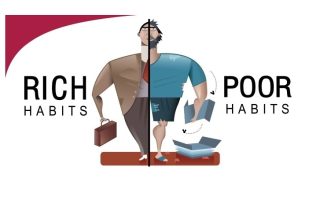Many seniors believe their tax burden shrinks after retirement, but hidden increases often tell a different story. Quiet tax hikes—like bracket creep, benefit taxation, and inflation adjustments—chip away at savings without much public notice. These changes are buried in complex IRS rules, making them easy to miss. For retirees living on fixed incomes, even small increases can create financial strain. Awareness is the first step toward protection.
Social Security Taxation Risks
Up to 85% of Social Security benefits can be taxed depending on income levels. Seniors who rely on modest pensions or investment withdrawals may unknowingly trigger higher taxation. This often happens when withdrawals push income above certain thresholds. Planning withdrawals strategically can reduce exposure and preserve more of your monthly check. Understanding how benefits are taxed is critical to keeping more of what you earn.
Required Minimum Distributions (RMDs)
Retirement accounts like IRAs and 401(k)s require minimum withdrawals starting at age 73. These RMDs can push seniors into higher tax brackets, creating unexpected liabilities. Even small withdrawals may trigger larger tax bills than anticipated. Seniors who plan ahead with Roth conversions or staggered withdrawals can minimize the impact. Ignoring RMDs risks penalties and unnecessary tax burdens.
Inflation’s Hidden Bite
Inflation adjustments don’t always keep pace with real costs. Seniors may find themselves paying more in taxes despite stagnant income. This “quiet hike” often goes unnoticed until refunds shrink or liabilities grow. Over time, inflation erodes the value of deductions and credits. Staying informed about IRS updates helps retirees anticipate changes before they hit.
State-Level Surprises
Beyond federal taxes, many states impose their own rules on retirement income. Some states tax Social Security benefits, while others levy taxes on pensions or withdrawals. Seniors who relocate for retirement may face unexpected bills if they don’t research state policies. Understanding local tax laws is just as important as federal planning. A DIY approach starts with knowing your state’s rules.
DIY Strategies for Asset Protection
Seniors can protect themselves by diversifying withdrawals, using Roth accounts, and timing income carefully. Tax software and free IRS tools can reveal hidden liabilities before they become problems. Creating a withdrawal plan that balances taxable and non-taxable income reduces exposure. DIY planning doesn’t replace professional advice, but it empowers retirees to stay ahead of creeping tax hikes.
The Role of Roth Accounts
Roth IRAs and Roth 401(k)s provide tax-free withdrawals in retirement. Seniors who convert traditional accounts to Roths may face upfront taxes but gain long-term protection. This strategy reduces exposure to future hikes and stabilizes income. For retirees worried about bracket creep, Roth accounts are a powerful DIY tool.
Charitable Giving as a Shield
Qualified Charitable Distributions (QCDs) enable seniors to make direct donations from their retirement accounts. These donations count toward RMDs but aren’t taxed as income. Seniors who give regularly can reduce taxable income while supporting causes they care about. Charitable giving becomes both a financial strategy and a legacy-building tool.
Emotional Impact of Hidden Taxes
Discovering hidden tax hikes creates anxiety for retirees. Seniors who worked hard to build nest eggs feel betrayed when savings shrink unexpectedly. Fear of losing independence grows as taxes erode income. Emotional stress compounds financial strain, making awareness even more important. DIY planning provides peace of mind and confidence.
Stay Ahead of Quiet Hikes
Quiet tax hikes are a reality for seniors, but they don’t have to erode your retirement security. By understanding Social Security taxation, RMDs, inflation adjustments, and state-level rules, retirees can protect assets. DIY strategies like Roth conversions, charitable giving, and careful withdrawal planning empower seniors to stay ahead. Protecting your assets means protecting your independence and peace of mind.
Have you taken steps to dodge hidden tax hikes? Share your experience—it could help other seniors protect their savings.
You May Also Like…

Teri Monroe started her career in communications working for local government and nonprofits. Today, she is a freelance finance and lifestyle writer and small business owner. In her spare time, she loves golfing with her husband, taking her dog Milo on long walks, and playing pickleball with friends.
Read the full article here



















